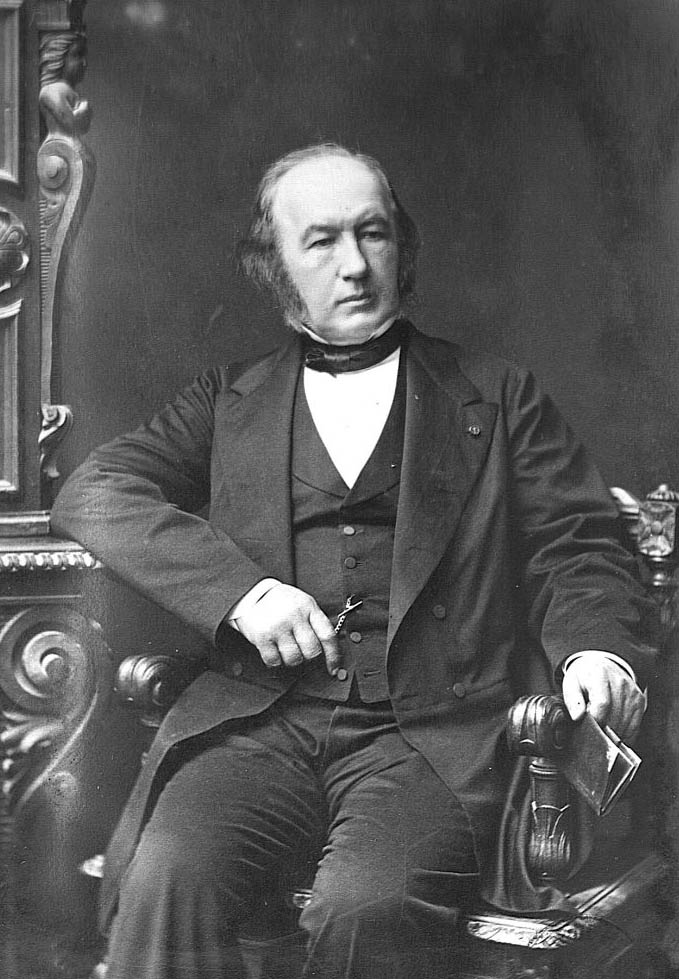| Claude Bernard | |
|---|---|
 |
|
| Physiologist | |
| Specialty | Physiology |
| Born | July 12, 1813 Saint-Julien |
| Died | Feb. 10, 1878 (at age 64) Paris |
| Nationality | French |
Claude Bernard was an eminent French physiologist. He has been named one of the greatest scientists in history and he was the first person to suggest the use of blind experiments in order to ensure objectivity of scientific observations. He was also the first scientist to define the term milieu interieur (now homeostasis).
Bernard’s Early Life
Claude was born on July 12, 1813, in a village near Vilefranche-sur-saone. He attended a Jesuit school of the town and later moved to a college at Lyon. However, he left the college after a short while to work as an assistant at a druggist’s shop.
Although Bernard had a religious education, he was an agnostic. During his free time, he composed a vaudeville comedy. This comedy achieved success and this moved him to attempt a prose in five acts which he entitled Arthur de Bretagne.
In 1834, at the age of 21, he travelled to Paris. He was armed with a play and an introduction to Saint-Marc Girardin. However, some critics discouraged him from adopting literature as a career but rather try medicine. He followed this advice and with time, he was an intern at a hospital in Paris. Here he came into contact with a great physiologist called Francis Magendie. Francis was physician at that hospital.
In 1845, he got married to Marie Martin in an arranged marriage by a colleague. Her dowry helped in financing his experiments. In 1847, Claude was appointed a deputy professor at the college and in 1855, he became a full professor.
Bernard’s Works
Claude Bernard worked at the laboratory of Megendie in 1811, where he wrote his legendary work. His aim was to establish the use of scientific methods in medicine. Claude dismissed several previous misconnections and railed on experiments. He insisted that all the living creatures were bound by the same laws as inanimate matter.
His first important work was on the various functions of pancreas gland. He proved that the juice was of great importance in the digestion process. This great discovery won him a prize from French Academy Sciences.
His second investigation made him very famous. This investigation was on the glycogenic function of a human liver. In his conclusion, he paved the way to the discovery of the causes of diabetes mellitus. He said that the liver, apart from bile secretion, is the main seat of an internal secretion. By this, the liver prepares sugar at the right temperature of various body parts by section of the nerves belonging to them. In this way, he was able to establish existence of vaso-motor nerves, the vaso-constrictor, and the vaso-dilator.
Vivisection
Claude practiced vivisection even with the disapproval of his wife and daughter. He strongly believed that the growth of medicine and the reduced human suffering justified the great suffering of animals. However, his wife was never convinced. In 1869, the couple was officially separated. His ex-wife went ahead to actively campaign against vivisection.
Introduction of Experimental Medicine
In 1865, Claude Bernard decided to disclose a major theory in a book called Introduction to Study of Experimental Medicine. In this work, he described what he thinks is a good scientific theory, what makes science important and so much more. He wrote his own experiments, thoughts and conclusions in the first person.
He said that a scientist is important if they have penetrated into the unknown. According to Claude, in science, there are areas where all facts are known by many scientists and we cannot tell who is greater. However, there are some areas where there is still much to discover and learn.
Claude’s Beliefs about Science
Claude believed that science is carried forward through experimental methods but not through accepting the authority of academic and scholastic sources. In the experimental way, much is learnt and discovered. Experiments are a constant interchange between facts and theories, deductions and inductions. Basically there are some particular experiments that may lead to formulation of new theories.
Claude also explains the relationship between cause and effect. He says that scientists try to find the relationship of cause and effect by testing hypothesis. Theories are simply hypotheses that are verified by facts. Those verified by many facts are the best, but they are never final and therefore never to be believed.
In mathematics, Claude Bernard said that even though its application to all areas of science is its ultimate goal, biology is very complex and poorly understood.
Bernard’s Death
Claude Bernard died on February 10, 1878, and was accorded a public funeral. He was interred in Paris.